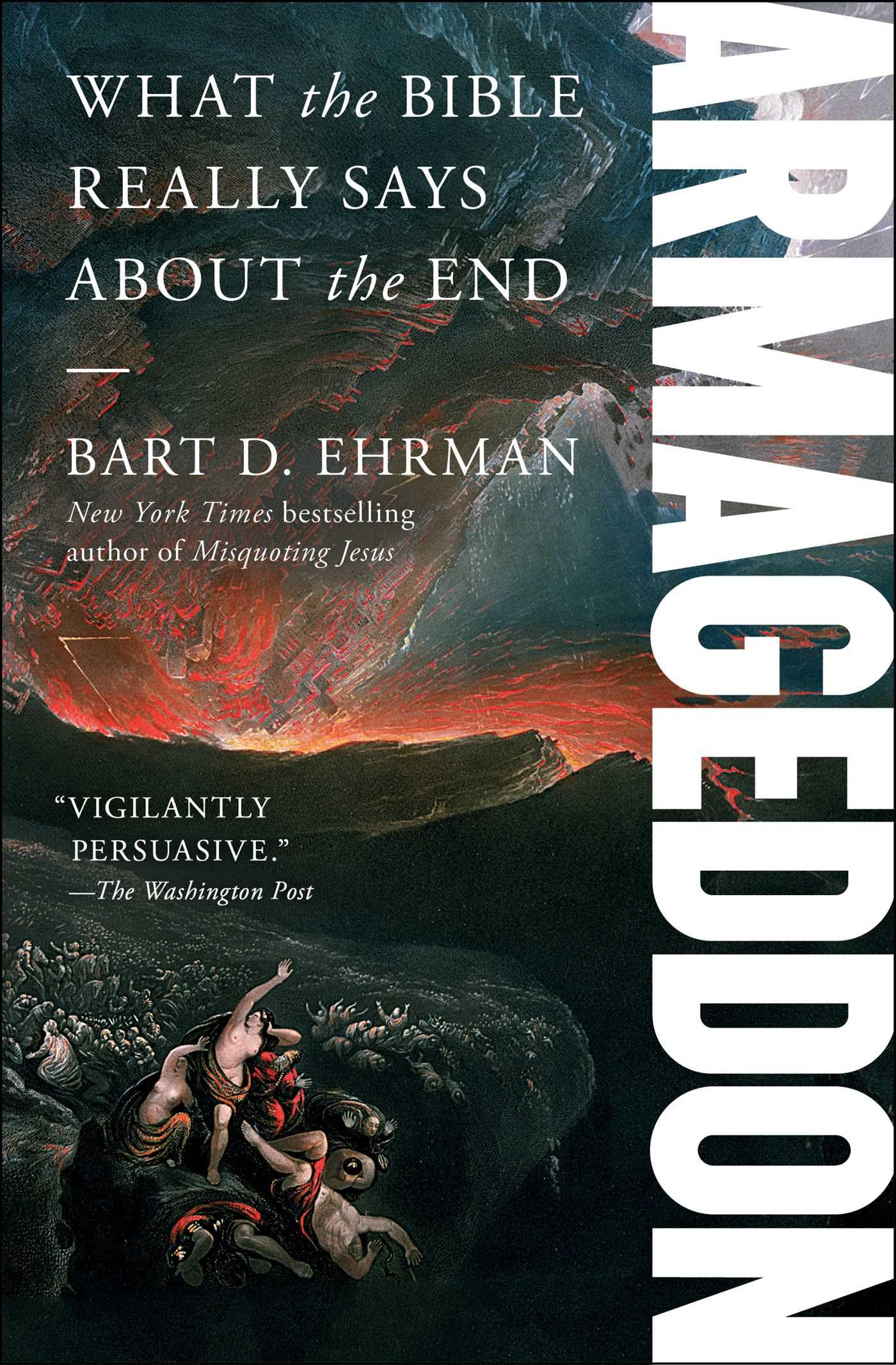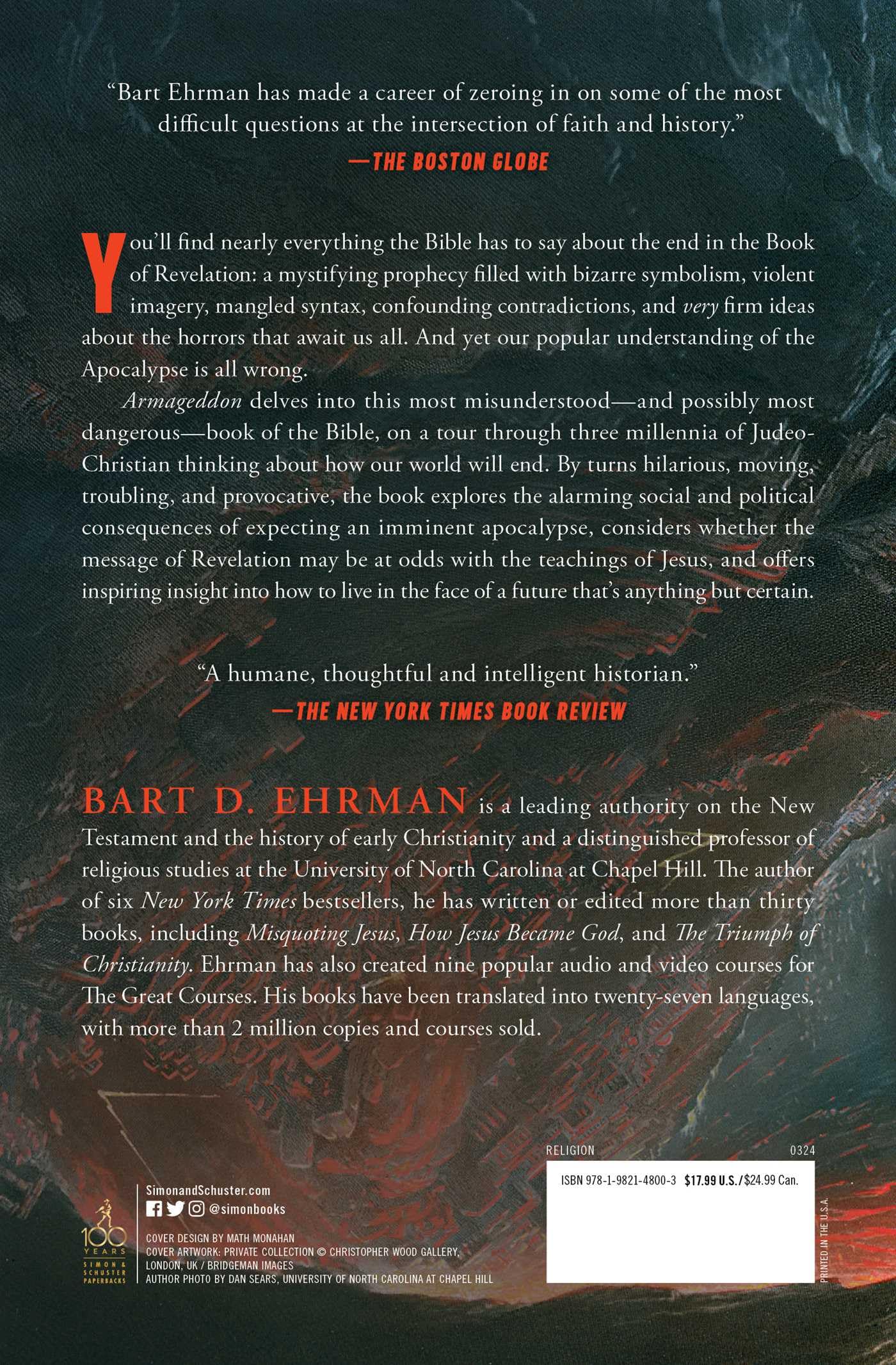


Armageddon: What the Bible Really Says about the End
D**R
Powerful and challenging
If you wanted to be pushed in the stereotypical understanding of Revelation this is ideal. Ehrman writes provocatively but simply to bring a far greater awareness to this confused text. Warning : could upset fundamentalists...
F**A
Excellent
Great read. Excellently presented and easy to follow and comprehend.
M**N
Good book, but Ehrman ignores the best explanation!
First, let me emphasize I'm a Bart Ehrman fanboy. I've read quite a few of his books and find them informative and clearly written. But...a big but...there is almost always something in each of his books traceable back to his former fundamentalist beliefs. (Read my other reviews of his books.)In this case, he seems (I'll say "seems" because I can't read his mind) to accept the fundamentalist belief that the literal meaning is "God's word" and that to challenge any given phrase or sentence is somehow denying the validity of the Bible. As a lifelong practicing Catholic, I can only say "Nonsense." You need to look for the underlying meaning, not just accept the literal text.Bart goes into detail about the nasty punishments in store for those who don't believe in Christ. But did John of Patmos really believe all those nasty punishments literally?What Bart ignores is the literary device of hyperbole (exaggeration) throughout the Bible. Mostly in the Old Testament, but certainly in the New Testament as well. Some examples:John 4:39, the encounter of Jesus and the Samaritan woman at the well. The woman tells her neighbors "He told me all that I ever did." Really? Literally? Every single thing? Of course not. She simply means that Jesus, whom she had never met before, knew a lot about her. Exaggeration.Or take Mark 1:4-5: "John came baptizing in the wilderness and preaching a baptism of repentance for the remission of sins. Then all the land of Judea, and those from Jerusalem, went out to him and were all baptized by him in the Jordan River, confessing their sins." "All"? Seriously? Every single person? Of course not. The author is simply making the point that "a lot" of people came to see him. Exaggeration for emphasis.Or take Luke 14:26, where Jesus describes the sacrifices you have to make to follow him: "If anyone comes to me and does not hate father and mother, wife and children, brothers and sisters — yes, even their own life — such a person cannot be my disciple.” Is this literally true? You have to "hate" those closest to you? Of course not. The point is simply priorities: You can't put your family before God. This is a common theme--Abraham and Isaac, etc. The greatest law: "Love the Lord thy God..." and then comes love of neighbor.For fundamentalists, these examples pose a problem. How can you believe--literally--every word in the Bible when clearly the literal meaning is NOT the real meaning? If I say "I'm so hungry I could eat a horse," does that mean I could literally eat a whole horse? Of course not. No one would think that.Hyperbole in the Bible is used for emphasis. It's not meant to be taken literally. The same with "Revelations". The author describes--in a very exaggerated way--the rewards and punishments that await people after the Last Judgment. And yes, he puts both in very material terms--so people can understand. Bart seems to take the author at face value, that he really means what he says literally. But doesn't it make a lot more sense to say "Yeah, John of Patmos exaggerates for effect; ignore the literal text and look for the meaning behind it. Those who are faithful will be rewarded in Heaven, and those who are not will be punished." It's like believing the literal truth of "Sleeping Beauty" instead of looking for the meaning of the story, which is, of course, love will overcome evil.
A**R
Religion
If you want to understand Revelations from the Bible,buy this book.
A**R
Well presented!
One of my favourite authors, Dr. Ehrman is thorough in his research while keeping the book easy to understand
TrustPilot
1 个月前
1天前